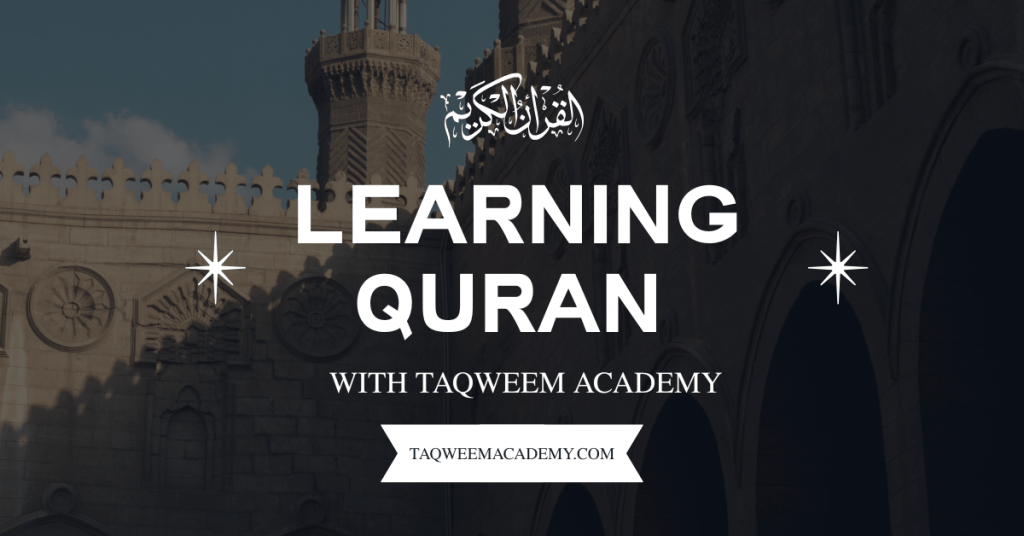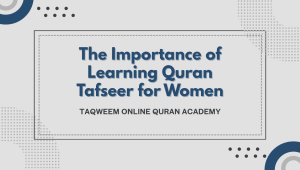Why Learning Quran is Important: A Spiritual and Moral Compass for Life
In an age where the world is advancing technologically and materially, the significance of spiritual growth and moral grounding has become more crucial than ever. For Muslims, the Holy Quran is not just a religious scripture, but a complete code of life that guides them through every aspect of their existence. Learning the Quran, therefore, is not only an act of religious obligation but also a powerful means of personal development, inner peace, and societal harmony.
1. Divine Guidance for Every Aspect of Life
The Quran is the literal word of Allah revealed to Prophet Muhammad (peace be upon him) over 1,400 years ago. It serves as an eternal source of guidance for mankind. By learning the Quran, Muslims can understand Allah’s commands, wisdom, and the purpose of life. The Quran covers a wide range of topics, from faith, ethics, and family values, to laws of trade, justice, and social welfare. It illuminates the path towards a balanced life where both spiritual and worldly responsibilities are honored.
2. Building a Strong Connection with Allah
Learning the Quran enhances a Muslim’s relationship with Allah. Reciting, understanding, and reflecting upon the Quranic verses deepens the believer’s sense of spirituality and brings about a profound awareness of Allah’s presence in daily life. It transforms mere rituals into heartfelt worship, enabling individuals to experience tranquility, gratitude, and contentment.
3. Moral and Character Development
The Quran plays a pivotal role in shaping a person’s character and morality. It encourages virtues like truthfulness, patience, humility, generosity, and forgiveness, while strongly condemning lying, arrogance, injustice, and greed. By learning and internalizing the teachings of the Quran, Muslims can cultivate a sound character that not only pleases Allah but also contributes to building a more just and compassionate society.
4. A Source of Mental Peace and Emotional Strength
In the modern world, where stress, anxiety, and depression are prevalent, the Quran serves as a source of healing for the heart and mind. The Quran assures believers that remembering Allah brings peace to the heart (“Verily, in the remembrance of Allah do hearts find rest.” – Surah Ar-Ra’d, 13:28). Recitation of the Quran has also been scientifically proven to have calming effects, reducing anxiety and instilling hope, patience, and resilience during difficult times.
5. Preserving Islamic Identity and Values
In a globalized world filled with conflicting ideologies, learning the Quran ensures that Muslims remain connected to their Islamic roots, identity, and values. It empowers the younger generation to stand firm in their beliefs, make informed choices, and resist negative influences that conflict with Islamic teachings.
6. Reward in Both Worlds
Learning the Quran brings immense rewards in this world and the hereafter. Prophet Muhammad (peace be upon him) said, “The best among you is the one who learns the Quran and teaches it.” (Sahih Bukhari). This noble act becomes a source of continuous charity (Sadaqah Jariyah), as the knowledge imparted to others benefits them and accrues ongoing blessings for the teacher.
Conclusion
In conclusion, learning the Quran is far more than acquiring knowledge; it is a journey of spiritual awakening, moral refinement, and self-improvement. It transforms individuals into better Muslims, responsible citizens, and compassionate human beings. Inculcating the love for the Quran, especially among children, is essential to ensure they grow up with strong faith, upright character, and a clear purpose in life.
Thus, learning the Quran is not only important — it is essential for navigating life’s challenges with wisdom, faith, and peace.






